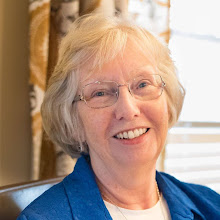My family attended Sewell Valley Baptist Church in Rainelle, West Virginia. Sewell Valley really knew how to put on a homecoming. The homecoming itself was a one-day event on Sunday, but the preparation began days ahead of time with the cooking taking up most of the Saturday before. And please understand, this was not a hot dog and hamburger kind of picnic. No. These dinners-on-the-grounds were complete home-cooked meals with a meat, two vegetables, salad, and dessert. Sometime in the 1960s my mother bought a contraption that consisted of five or six round metal containers into which the various dishes could be placed. The containers were then stacked on each other, making a column which was clasped into a wire-like handle and carried forth to share at the homecoming. It was the high-tech way to transport cooked food, and it sure beat cramming bowls and pots of hot food into a cardboard box.
Homecoming at Sewell Valley started with the regular church services, Sunday school followed by worship during which a guest preacher usually delivered the sermon. There was singing. Oh, there was lots of singing. After the blessing was pronounced at the end of the sermon, everyone trooped out to the long wooden tables that had been set up under the trees in front of the church. On those tables the women (this was not a job for men) had set out the various dishes they'd brought, all home-cooked and still a little warm. This was the time for adults to visit, children to play, for the men to sneak away from the crowd to smoke cigarettes. When the music started inside the church, that was the cue for everyone to trickle inside for the afternoon "singing" which lasted into late afternoon.
Of course, homecoming was the time for those who had moved away to return and visit family and friends. They came back to their home church. My father, Red Ballengee, did not have much contact with family or friends once he left Summers County. His parents were dead; he had some half-brothers and sisters, but he'd not maintained contact with them. I think it was my mother who encouraged him to drive back up Sourwood Mountain to see if things had changed, and I also think it might have been so that I, who was in my early teens, could see where my dad had grown up. The friends he visited, especially Mr. Tom Shephard (I think he was one of my dad's teachers) and his daughter, Callie, suggested that my dad come to the Homecoming at Chestnut Grove Baptist Church.
Chestnut Grove was a small church, but the building was overflowing at that Homecoming. Other than the picture I took of my parents, my uncle and his wife, and my dad's friends in front of the church, the only other thing that I remember of that day is that I was recruited to play the piano for the singing. I play the piano only a little, by reading music, not by ear. This means that I can only play the songs as they are written in the hymnal. If you insist on improvising your singing while I accompany you on the piano, you will rapidly be singing a cappella. When the call went out for a piano player that Sunday, my parents were all too happy to point out that I could play. I managed to play the songs they were singing, because they used the songs I knew from the hymnal. It wasn't terribly complicated. I think it made my dad happy.
Other than being a little stressed because of the piano playing at Chestnut Grove, all my memories of homecomings are beautiful ones. Homecomings were joyful, exciting times when you could count on being received with a smile at the old home church. I don't think it's an accident that homecomings take place at churches. This is our reminder of the great homecoming yet to be, when trials and pain are forgotten at the joy of being reunited with family and old friends. There will be singing. Yes, lots of singing.
 |
| Sunday School class at Chestnut Grove Baptist Church around 1921 or so. Red Ballengee is the boy in the suit who looks remarkably like Opie Taylor. |

